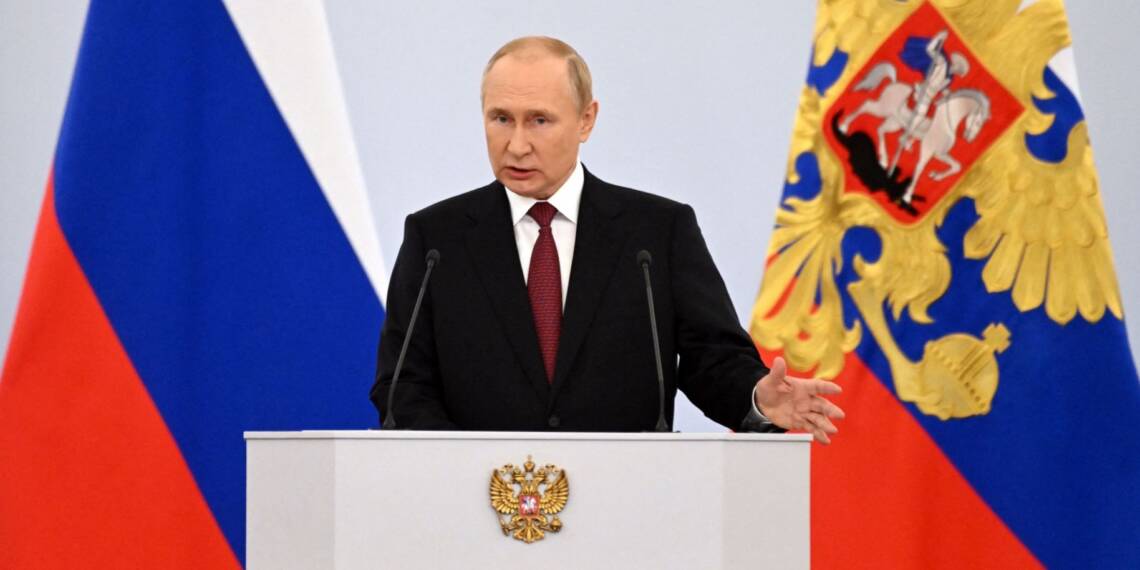Russian President Vladimir Putin on Thursday declared that Moscow is ready for a “missile duel” with the United States. He added that this would represent how their latest Oreshnik hypersonic ballistic missile could easily defeat any American defence system. Putin was speaking at his annual press conference and addressed a number of issues, from the Syrian war to the recent assassination of a Russian general.
In response to Western doubts about the Oreshnik, Putin recommended that each side should choose a specific target to be safeguarded by American missiles. “We’re ready for such an experiment,” Putin said.
The Russian President also additionally noted that whilst the Oreshnik is a contemporary weapon, it incorporates elements from previous Russian missile designs
Russia initially deployed the Oreshnik missile against Dnipro, a Ukrainian city, on November 21, which Putin described as retaliation for Ukraine’s use of American ATACMs ballistic missiles and British Storm Shadows which were launched against Russia, with the move backed by Western nations.
Putin accuses Ukraine of terrorism
The Russian president also commented on the murder of a high-profile general in Moscow earlier this week by accusing Ukraine of having repeatedly committed acts of terror against his country’s citizens.
Lieutenant General Igor Kirillov, who was the chief of Russia’s Nuclear, Biological and Chemical Protection Troops, was killed outside his apartment building on Tuesday along with his assistant when a bomb attached to an electric scooter exploded. “This murder was committed in a way that is dangerous to the lives of many,” Putin said. “The regime in Kyiv has repeatedly committed such crimes, terrorist crimes, terrorist attacks against many citizens of the Russian Federation.”
Russian authorities had declared on Wednesday that they had detained an Uzbek man who had confessed to planting and detonating the bomb which killed Kirillov in Moscow on the instructions of Ukraine’s security service.
Syria war
Putin also said that he plans to speak to the ousted former President of Syria, Bashar al-Assad, who fled to Moscow after opposition forces ended his 24-year rule. “I will tell you frankly, I have not yet seen President Assad since he came to Moscow. But I plan to do so. I will definitely talk to him,” Putin said, denying to reporters that the fall of al-Assad represented a defeat for Russia.
“You want to portray everything that is happening in Syria as some kind of failure, a defeat for Russia. I assure you, it is not. And I’ll tell you why. We came to Syria 10 years ago to prevent a terrorist enclave from being created there,” Putin said
“On the whole, we have achieved our goal. It is not for nothing that today many European countries and the United States want to establish relations with them (Syria’s new regime). If they are terrorist organisations, why are you (the West) going there? So that means they have changed,” he added.
Putin has indicated his intention to inquire about the whereabouts of American journalist Austin Tice, who disappeared in Syria 12 years ago, during discussions with former Syrian President Bashar Assad. Putin confirmed that while he has not yet had a meeting with Assad, who has received asylum in Moscow, he intends to raise the question of Tice’s disappearance when they meet. “We also can pose the question to people who control the situation on the ground in Syria,” Putin said.
Russia’s economy is overheating, says Putin
Russian economy is experiencing signs of overheating, leading to concerning levels of inflation. During the speech Putin expressed his support for the central bank’s stringent monetary policies, whilst suggesting that more prompt action might have been beneficial.
The central bank is anticipated to implement a substantial interest rate increase of 200 basis points to 23% at its Friday meeting, reaching its highest level in more than two decades. This strict monetary approach has faced significant opposition from the business sector.
“There are some issues here, namely inflation, a certain overheating of the economy, and the government and the central bank are already tasked with bringing the tempo down,” said Putin. Putin indicated that the combination of strict monetary policies and government measures to moderate economic activity would result in reduced growth rates in 2025 compared to this year’s 4%.
“I think the (growth rate) next year should be somewhere around 2-2.5%, a sort of soft landing in order to maintain macroeconomic indicators,” Putin concluded.








